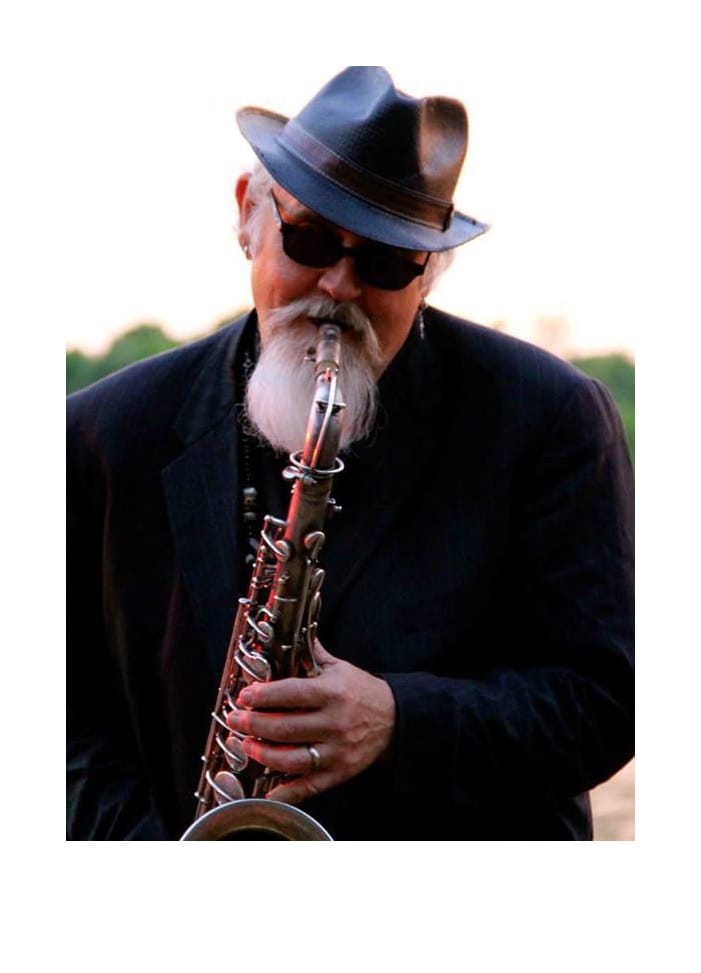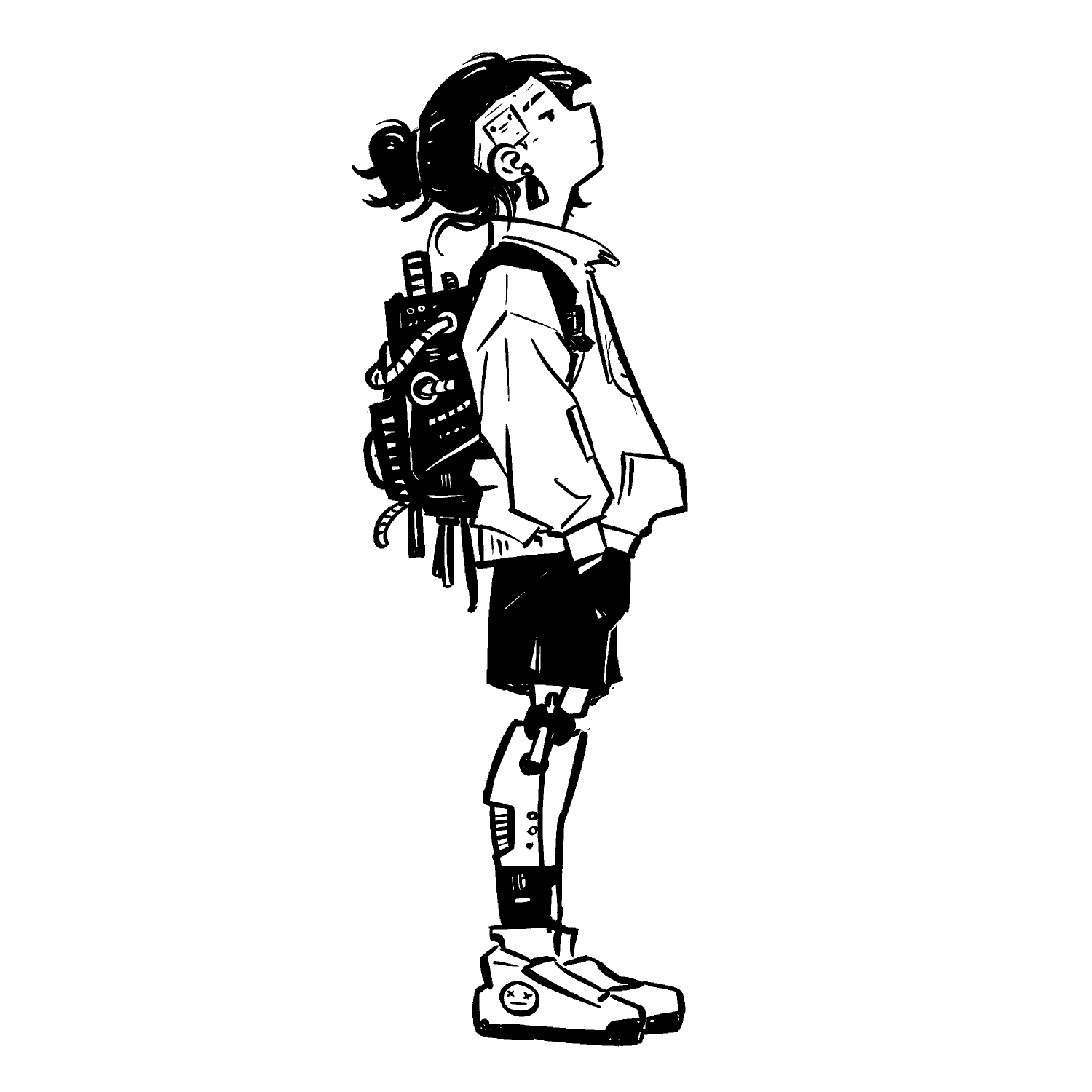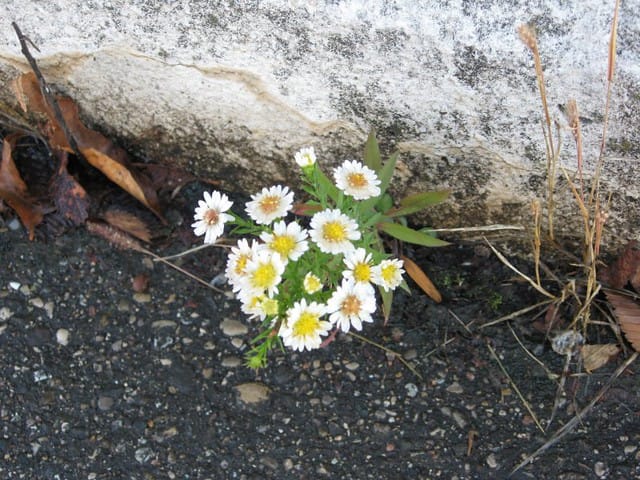Beyond Therapy: Dismantling Capitalism’s Grip on Mental Health and Youth Work. Part II

An Interview with Hans Skott-Myhre
To read part one:

Summary:
Hans Skott-Myers critiques capitalism's influence on psychology, showing how it reduces mental health to commodified individualism. He argues "mental health" has become an empty concept that reinforces dependency on professional systems while ignoring social conditions.
In youth work, Hans criticizes modern programs for prioritizing control and employability over authentic connection, urging a return to relational approaches. He calls for intergenerational solidarity, learning from youth who understand today's world better than adults clinging to the past.
Hans adds that adult social life has also been hollowed out by virtual transactions. He proposes building small, non-commercial communities where collective joy replaces capitalist alienation.
Jeff Jones (Liberation Psychotherapy)
Mainstream mental health increasingly individualizes suffering. How can clinicians and activists disrupt this while still honoring real emotional pain?
Without reinforcing the neoliberal self-management.
Hans
We're self-obsessed and that's not an accident. I think the individual had a pretty good run for about 400 years as something that could radically change things because it allowed for a certain sense of agency, a certain sense of ‘I can challenge the church.’ *I* can. Certainly Sartre in a way- I can act.
That was really powerful for a long time until capitalism figured it out. It then said ‘we're going to make this highly commodifiable. We're going to introduce a certain level of uncertainty and insecurity to it that's going to make everyone start chasing it as though they didn't inherently have it.’
I think as a result of which we've gotten into this business of self-care and self-management and self-control and all of these sorts of self-valorization, verging on narcissism for many of us. In a sense, it's not our fault that we're narcissistic. It's because what we're being sold as the model of the self is to take care of me, me, and we are in more pain because we're increasingly alienated and isolated from one another because we're looking out for me, and me is radically insufficient. There is nothing in us. Period. We are produced collectively. We are “we" always. There's, as Spinoza would say, the only way that you know that you can act is in relation to another body who evokes a certain response from you, and so everything happens between us.
We are produced collectively and culturally, but there's the possibility of a fascist element there if we read community as that which excludes those who aren't us.
The alternative to that, as Hardt and Negri would say, is the multitude in which all of us bring our differences together for common purpose and each of us something to contribute according to each of us having a certain need in good old Marx.
I think in that sense, we need to relinquish the self in favor of a sense of a collectivity, an ecology, how we're connected, of really being deeply attentive to one another, a sense in which we are able to open ourselves to the other, risk those connections and be willing to suffer the pain of connection over the pain of alienation.
That's how we learn, that's how we shift, it's how we change, by figuring out how to act in ways together that are uplifting rather than contentious and painful.
That can only be learned collectively. Oddly enough, I think it requires a certain amount of mirror time, that is to say it takes a certain amount of self-reflection to do that work. In order to get rid of the self, this is oddly buddhist sort of quandary, you really need to be able to openly self-reflect sufficiently to disperse it.
Jeff Jones (Liberation Psychotherapy)
It's a porous wall. It's not an existential individual versus the collective, it's both interacting with each other.
Hans
But each of us is idiosyncratic and unique, right? We bring something to the table no one else can. And each of us, that's compositional. It's how we're made up- completely idiosyncratically and uniquely. What brings forward are those elements of ourselves that are most interesting. It's with other people that they bring forward those parts of us that we didn't see or know about or recognize, because once you think you know yourself, you don't learn anything interesting.
But when you bump into people who make you think,’ oh, I didn't know that about myself’, right? I never knew I could sing or I never knew I could do this or that, never knew I could love in that way. That's still you. It's still the idiosyncratic parts of you, but it's as though you're like a transit point through which life flows.
You're sort of this transit point through which life flows in an infinite number of directions, bringing bits and pieces of you that you didn't even know existed into your consciousness.
Jeff Jones (Liberation Psychotherapy)
Could fostering non-capitalist relationships, collectives, squatting, itself be a form of treatment for alienation, what risk or limits do you see?
Hans
I think the only antidote is love in a radical sense. It is love in the sense of sharing each other with each other in materially relevant sorts of ways.
If you sit in your house and you only go see your psychotherapist about your anxiety. Pretty much you start thinking you’re just a weird person who has anxiety. But if you've come to understand through talking to a dozen other people that everyone feels anxious. Then you start coming to a different conclusion about anxiety, which is ‘hey, wait a minute maybe this isn't my problem. Maybe this shit's fucked up.’ The system is not a good place to live. It's a toxic system.
I think the only antidote is a certain kind of radical love. My partner, Kathy Skott-Myhre, writes about this. That radical love is the capacity to to work together, to speak together, to collectively understand and to build a sense of us and a sense of an alternative us, and that can't be done by yourself.

One of the things I tell my students when they get all fired up about changing the world is- if you go out by yourself and try to change the world, they will kill or jail you. There's no question about it, right? You'll get fired, jailed or shot. But if you work with all the students in this classroom who agree with you and you all stay connected over years and you all keep talking to each other when shit goes bad, you're on the phone or you hang out or you go to the coffee shop or you email each other- all of a sudden you have a new sense of home and home isn't your job and home isn't the city you live, home is the collectivity of people who are like-minded and who love you and they don't all need to be your neighbors. They are the people who you have come to rely on for understanding, for you have a commonality, a vision, but all of you are radically different. All of you have something to bring to the table you appreciate. That sort of loving collective is probably the only alternative.
It can't be forced. In the 60s, we had the mistake of thinking, well, we'll build these communes. We had this idea of solidarity, it's just going to be all happy and seamless and great and utopic. We left out the part where relationships are messy, they're difficult and painful sometimes. I just wrote my last column for CYC Online about solidarity being a messy process.
It's not utopic, and it takes a certain kind of patience, stick-to-itiveness, a certain kind of trust in the process, willingness to put up with difficult people.
That's not different from youth work then because that's how we're supposed to be working with young people. If we work with each other the way that we work with young people, we could start to have way more patience and way more understanding for each other.
Sometimes we're all a pain in the ass, sometimes we're difficult, sometimes we're angry, sometimes we're in pieces- we need to understand that we're all like that for periods of time, and we all need each other to be there when that's happening to build solidarity and keep moving forward and to keep building an alternative.
I think it's probably important to note that the system, as an empire, is probably failing. How quickly it fails, I don't know, but it's going to fail and when it fails, it's going to be a mess. We're going to lose a lot of people, it's going to be really, really nasty. If that's the case that is really imperative upon us to do two things. One is we need to plant as many “seeds” as possible so that if it occurs outside of our lifetime. Our work continues with people who will work forward.
The other thing is that I think we need to build pockets of alternative life. I guarantee you the folks on the other side of the fence are building pockets of reactionary life. They're getting guns and they're getting supplies and whatever else if shit goes down. They’ll have these little reactionary pockets of life.
We need to do just as well in terms of building progressive pockets of life, in terms of building loving pockets of life, that if shit goes down they're there to bring forward an alternative, to bring forward a new way of life.
You can't fully bring it forward in this world. It's not possible under capitalism to bring it fully forward, but you can certainly create spaces for it.
Jeff Jones (Liberation Psychotherapy)
Maybe this is different, but I've heard it be called dual power, creating the new world we want now.
Hans
This is the promise of the diggers right in the 1960's. They said, ‘we're just going to live as though money doesn't exist.’ I think it's a similar sort of way of thinking, you need to start to live life as you wish it to be lived now.
Within capitalism, that's not a pure thing to do. There's a purity in it. You can only do as much, but do as much of it as you can, and then plant the seed with the next generation. Build it a little bit more with every generation after that. We tend to be obsessed with ‘if it isn't going to happen in my generation, then screw it, the world's going to hell in a handbasket.’
We need to be far more generationally oriented than that, I think.
Jeff Jones (Liberation Psychotherapy)
This reminds me of an article I read years ago about a guy. He was supposedly a true “hermit” up in Maine who lived all by himself for 25 years in the woods and never talked to anybody. He eventually got arrested because he was breaking into cabins once in a while to get stuff that he needed.
He needed stuff from these cabins. He needed other people, other cultural artifacts, to survive.
You mentioned the communes of the 60’s. They needed the outside world as well. They needed the local community which eventually would need nationwide and international community to survive. I guess what I'm seeing is we need solidarity within all of that.
Many young people articulate a paralyzing sense of collapse, climate doom, late stage capitalism. How can liberation psychology movements, if it all, help turn the despair into action without toxic positivity?
I don't like to say there's always hope.
Hans
I don't know that there is hope. And I think we have to be very real about that.
These are very dark times and there is the very real possibility that the nihilists have got it right. However, you're going to get up tomorrow very likely. So what are you going to do with those moments? There is some small chance that something else could happen here. If there is that small chance, it seems like it would be reasonable to do everything that we could to nurture that small chance.

No one would think when you're driving down the freeway and you look at these vast walls of concrete that there would be trees growing in them, but there are. The trees break through that concrete and they survive. I saw one the other day that had to be 15-20 feet tall, that was just coming out of a shear wall of concrete.
We are weeds. We have to understand that if given the opportunity weeds will completely take over an environment and even without the opportunity they will continue to come back and come back and come back. We need to be those weeds. Is there the chance that the whole thing will go down? Sure, of course, there's a chance species’ can collapse. But if there's any small chance that we can be the weeds, we should do as much as we possibly can to be those weeds.
I think it's a double process. If you're going to work with people, it's principle 101, which is you always start with acknowledging someone's experience. If someone is feeling paralyzed and they're feeling the world closing in and that it's a very dark place- yeah, I don't see any reason that that worldview is crazy or that someone should try to be talked out of it.
The question is, is that where you want to live? Or would you like to have the possibility of living at least slightly differently than that?
I don't think that's an unreasonable position and I don't think paralyzed is being unreasonable either. Deer in the headlights absolutely makes sense in the world, to me. But if you freeze too long the car is going to hit you.
"The biggest of which is to start to make connections with other people who are not going to try to talk you into the world being a better place, but are going to try to talk you into ‘let's do something together today, let's cook a meal, let's go for a walk, let's get out of bed.’"
If there's some way to get mobilized, to get into flight, into movement, to act, there are some ways to do that. The biggest of which is to start to make connections with other people who are not going to try to talk you into the world being a better place, but are going to try to talk you into ‘let's do something together today, let's cook a meal, let's go for a walk, let's get out of bed.’
That's where life starts. Life is what the name of this is. It's about life, affirming life, affirming living force. And I don't care how small that affirmation is, it doesn't make any difference to me. In fact, I'm a bit nervous about large affirmations, because I think when they fail, we get very discouraged.
Jeff Jones (Liberation Psychotherapy)
What would that be? Sorry. What would be a large affirmation?
Hans
I think sometimes large affirmations are revolutions where we overthrow governments or we have mass demonstrations like we did yesterday (April 5th, 2025) and I went, of course.
What are we going to do when the U.S. government shrugs its shoulders and says, ‘eh?’ Are we going to then feel like it wasn't worth it?
These large affirmations of this tendency. ‘Look what we did with millions of people in the streets!’ Well, that didn't work, I guess it's hopeless then. I don't mean don't do them, go ahead and do them. Real change happens when somebody gets up out of bed and they have a meal and they feel just a little bit more like they could act, they could do something.
That's affirmations of living force, that has some purchase because if somebody falls back in bed again, well, okay, start over again.
If we can then begin to build that collectively, little failures are much easier to remedy than massive big ones.
Jeff Jones (Liberation Psychotherapy)
What would a non-state psychological praxis look like? One that supports liberation without institutional capture.
Hans
Years ago, there was a guy named Charles Waldegrave. Charles ran a place called the Family Center in New Zealand. It was a very radical place. They started off doing family therapy, and they were very good at it, but they were very politically oriented and very socially progressive. At that time I was running a runaway and homeless youth organization that did a lot of family work.

I had Charles come out and talk to us about the progressive work he was doing in New Zealand. He pulled me aside at one point and he said to me, ‘I only have one question for you’ and I said, ‘what's that Charles?’ He said, ‘why are you still doing therapy?’
‘What are you talking about? I'm a therapist. I really like doing therapy. I think it's helpful. And people feel better.’
He said, ‘yeah, but are you changing the underlying conditions that are causing the suffering of the people you're helping? Or are you just helping them to be able to get along a little better under the conditions?’
He said, ‘because at the family center, we've given up doing therapy. We only collaborate with our clients to change the socioeconomic conditions and material actualities in which they live. We don't do therapy anymore.’
I think at some level, we have to abandon therapy. Maybe because we're not ready for it yet. Maybe because it's not what's necessary in this political moment. Now, having said that, I'm not suggesting that we don't provide palliative care for suffering, that we don't find ways to comfort each other, to find ways to feel a little better when it's impossible and overwhelming.
I do think we need to give up the impression that therapy is somehow going to make the world a better place, or it's going to make us better people. I think it's like any number of things that can help you not feel absolutely miserable, and that might help you to be able to be more motivated.
Therapy is a project that has political implications. It’s not viable any longer. Unless we really begin to think about the ways we interact with people as being motivated towards all of the things we've been talking about today, and give up any of the psychological implications of therapy in terms of traditional psychology.
There's certainly critical psychology, feminist psychology, there's all sorts of edges of psychology that we could pick up on. We need to start thinking about psychology or psychotherapy as a mode for the production of a new kind of subjectivity, a new person, a new way of life, as opposed to a remediation of suffering.
Those two are not mutually exclusive, if you can begin to work collectively towards new forms of subjectivity, anti-capitalist or post-capitalist subjectivities, then of course you are going to remediate suffering to some degree because people will have that uplift. In an odd way, it's a little bit like doing addiction counseling. We have to in some way, re-subjectify people, so they're no longer addicts. In the book that we just did on decelerating, Jeff Smith, Scott Kouri, my partner, Kathy and I, we talked about the necessity of becoming sober as political activists.
I don't mean sober in the sense we were not getting high or getting tipsy any longer. I mean, sober in the sense that we are no longer involved in the addictive system. We're no longer chasing after that high that comes with consumerism or that comes with self-authorization, that when it comes sober in the sense of absolutely deadly serious about becoming something else.
Jeff Jones (Liberation Psychotherapy)
Reconnecting with those modes of life? Getting out of that individualized isolation in the past, the capitalist mind frame and ways of being and moving towards this socialness.
Hans
Yeah, yeah. At a whole other level, reconnecting to the material world. As silly as it sounds, hug a tree.

Go out there, sit in nature, at least when you're walking to your car, pay attention to the world around you, to the breeze, to the way the ground feels under your feet, to the plants that are coming into bloom or dying, I mean, pay attention to the world you live in, the actual material world you live in and connect to it.
I'm sure you know this, but if you’re actually close to a tree, it's actually admitting chemicals that trip dopamine receptors in your brain. It's not just a hippie-dippy hug-a-tree kind of thing. It actually is psychologically verified. It actually changes your brain chemistry to be in connection with nature.
Jeff Jones (Liberation Psychotherapy)
I haven't read that, but I'm not surprised. When I get my hands in the dirt and the garden, there's nothing more grounding, literally, figuratively, you're a part of it.
Hans
Absolutely. Absolutely. No question. It is equally important that we connect that direction as well.
Jeff Jones (Liberation Psychotherapy)
Any last words or advice?
Hans
Find people who are writing things like we're writing. Read the stuff we write and take a look and find other people who are like thinkers. Wherever you find them in writing or on the web.
There's lots of us out here jumping up and down. We're hollering as loud as we can. So give us a listen and contribute your voice.
Jeff Jones (Liberation Psychotherapy)
Thank you so much.
Hans
Really appreciate it. Pleasure to meet you. Pleasure to meet you


